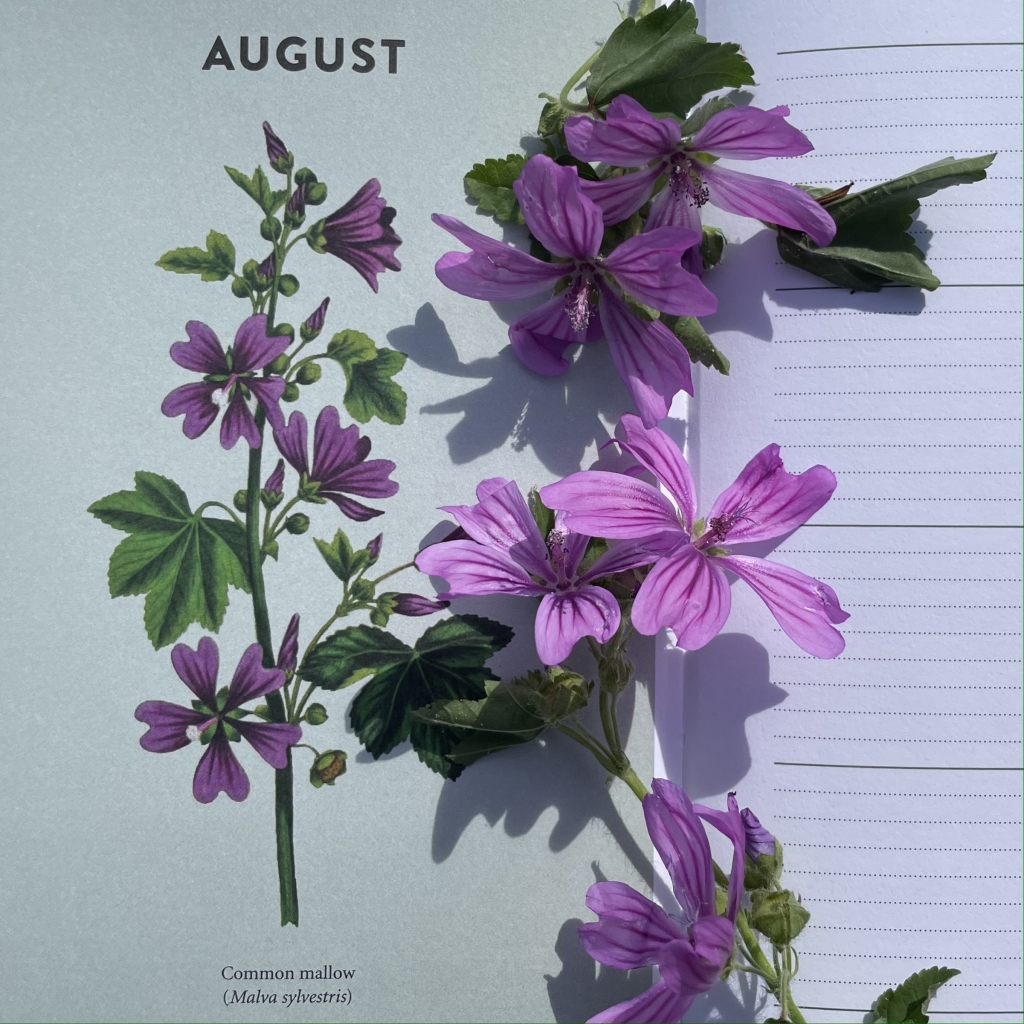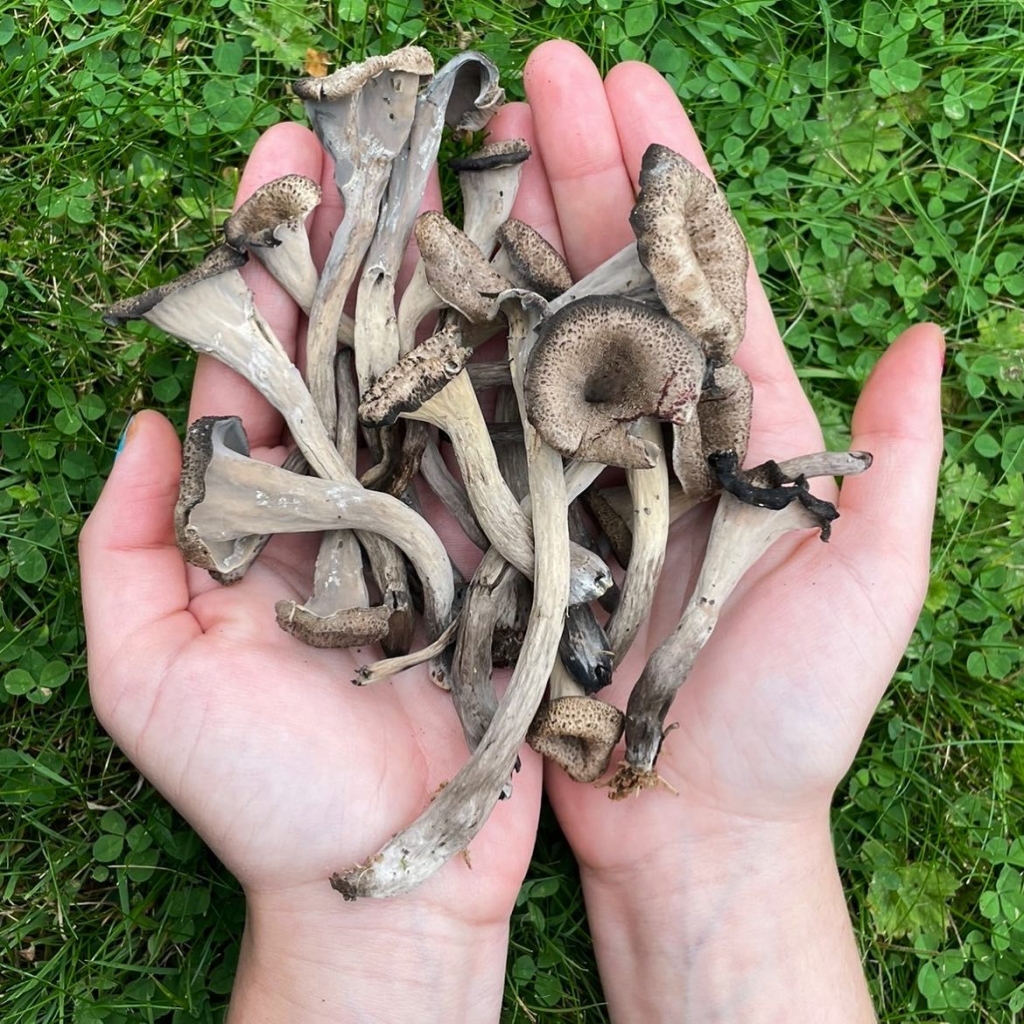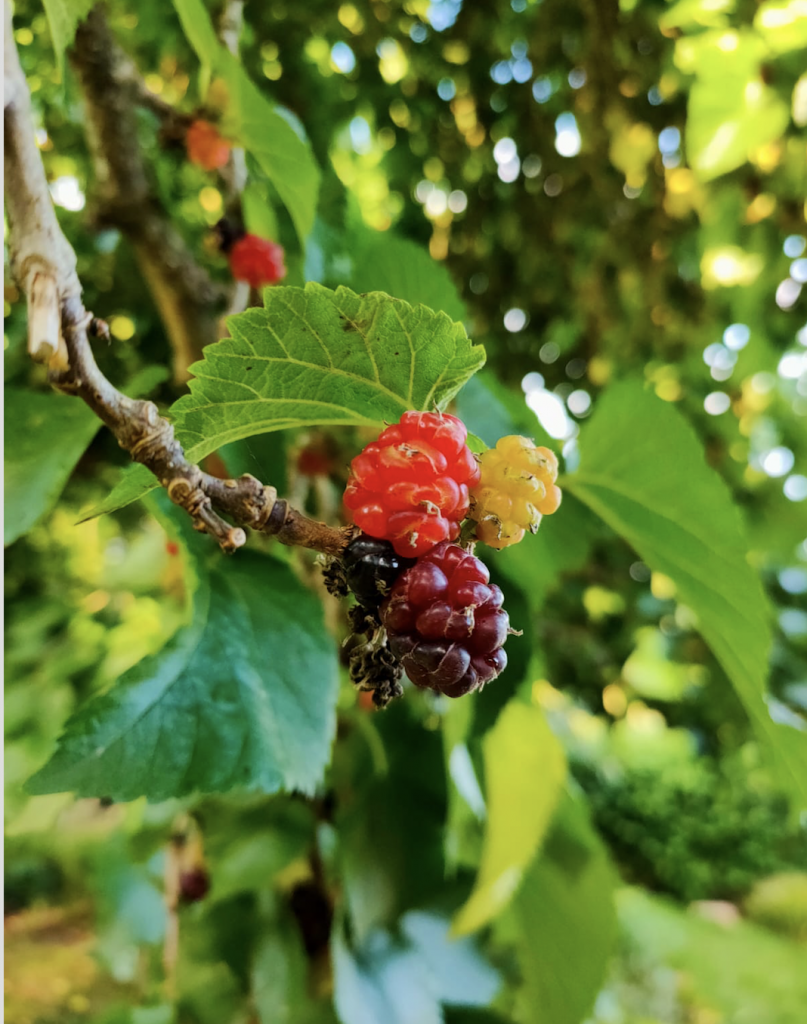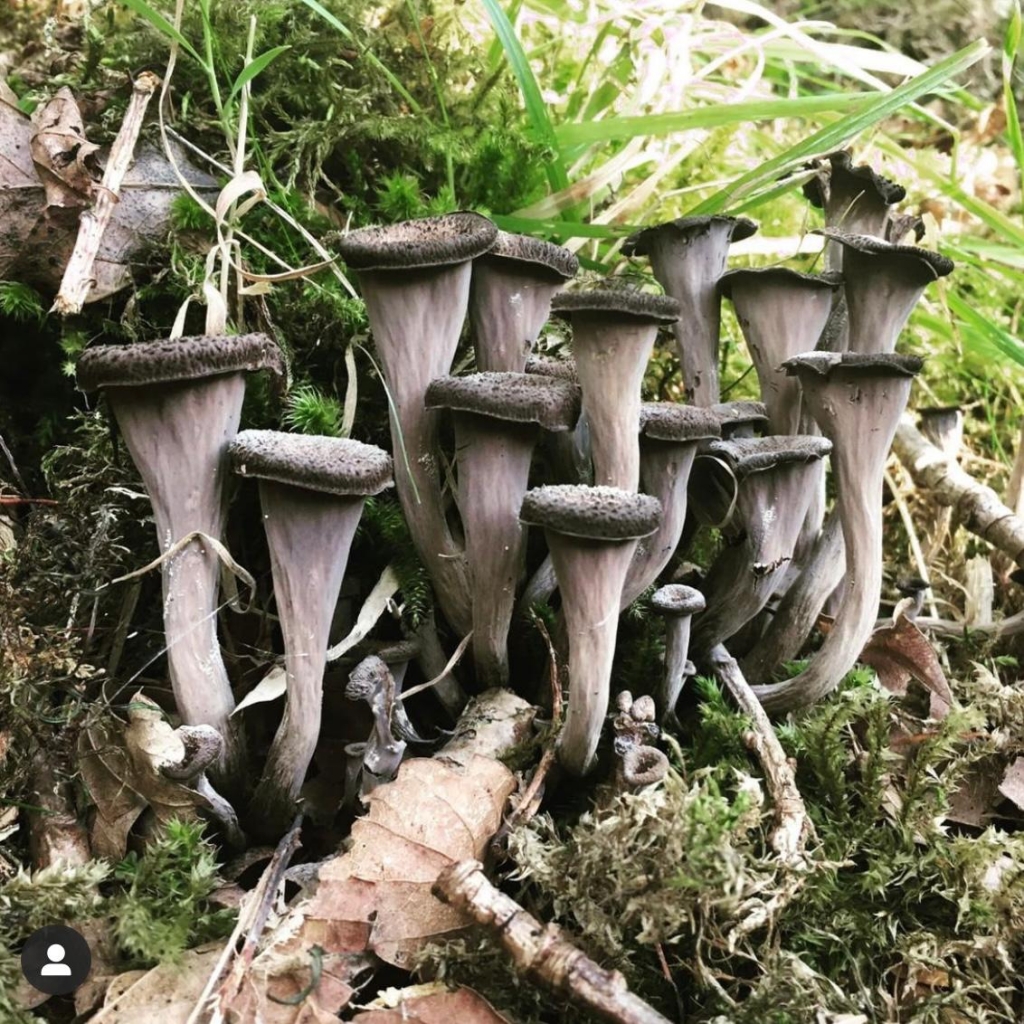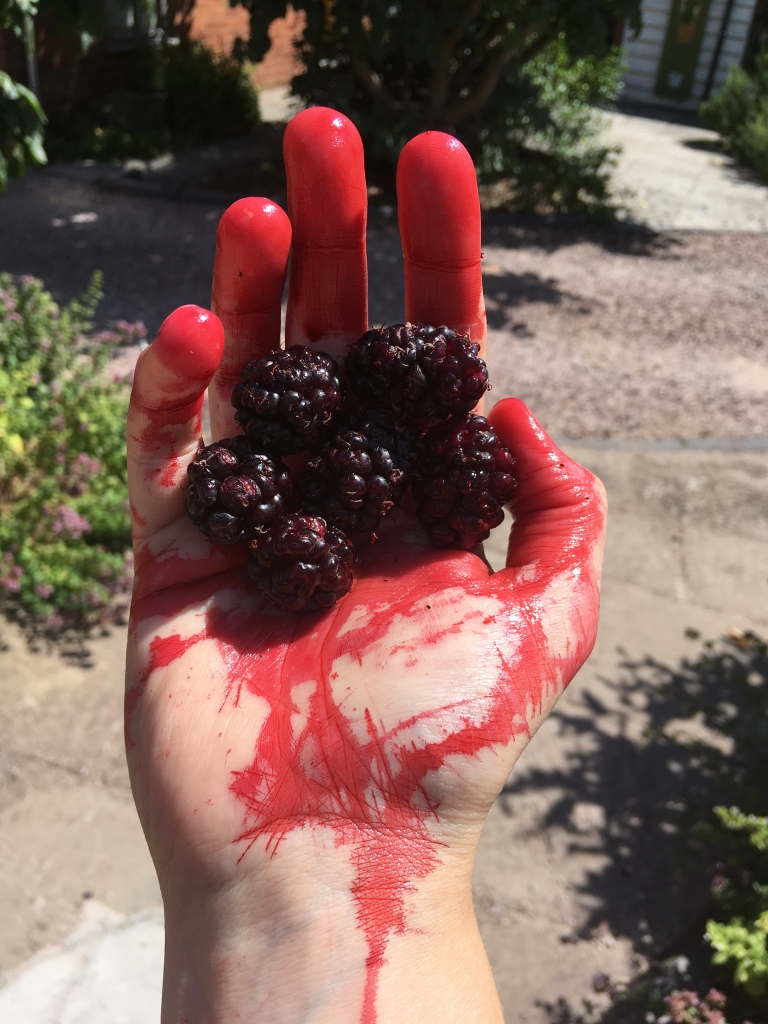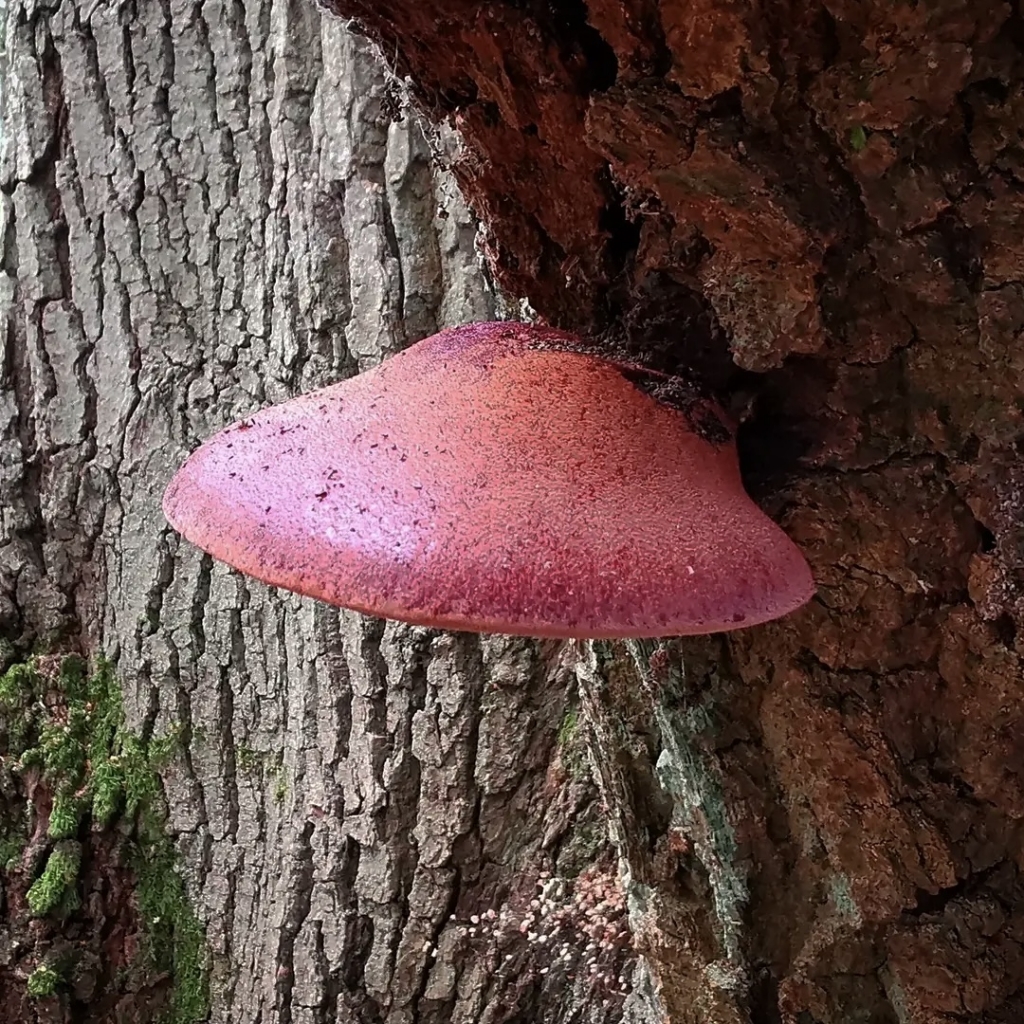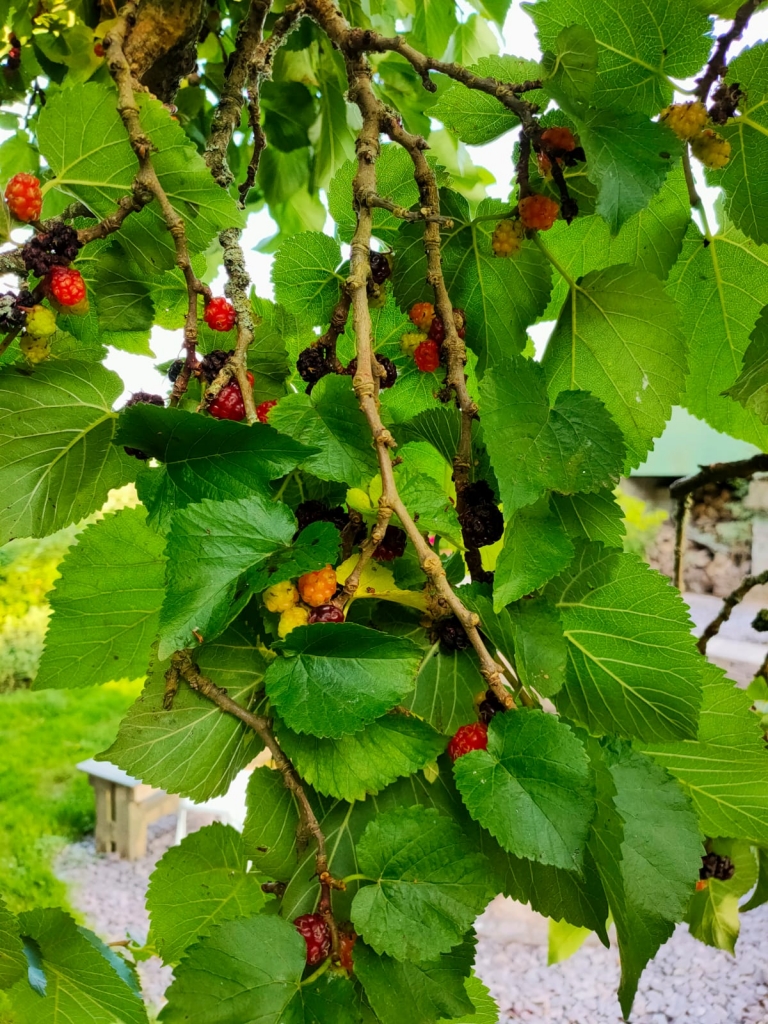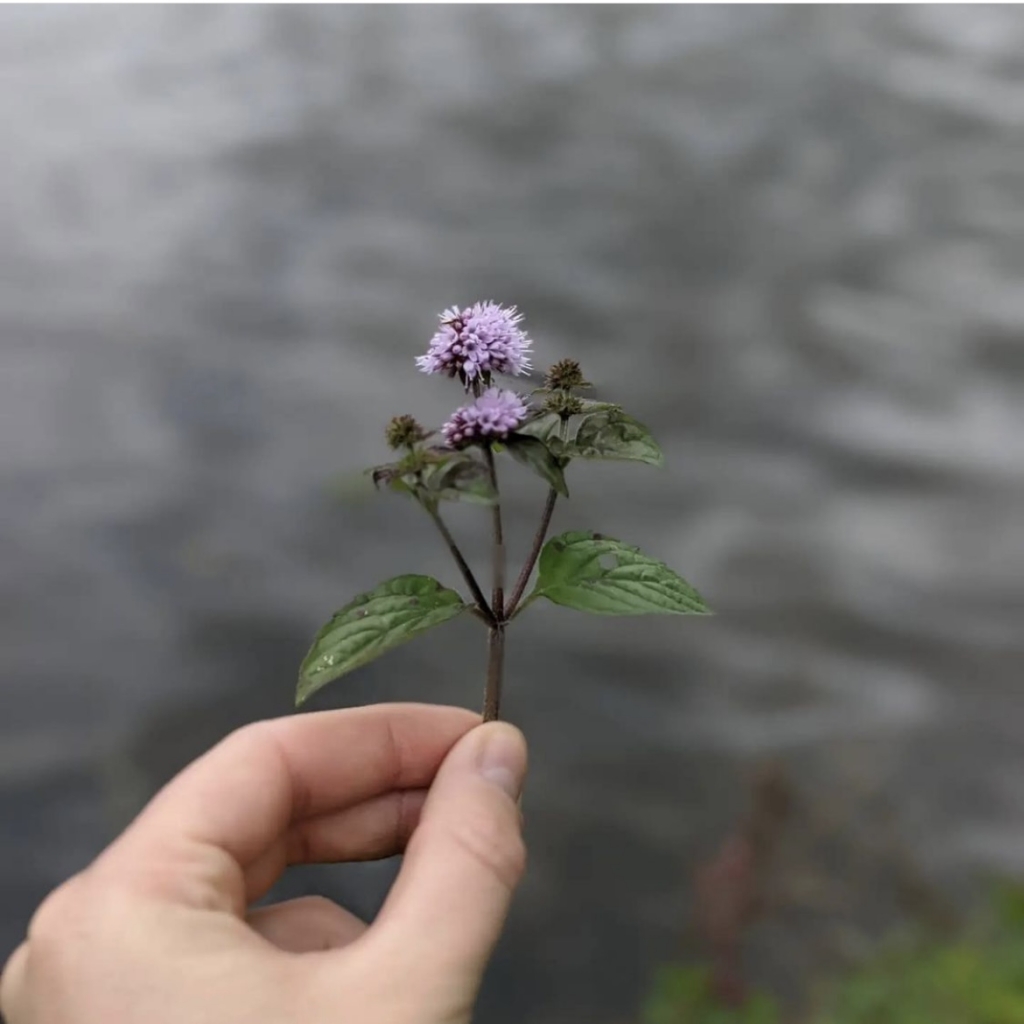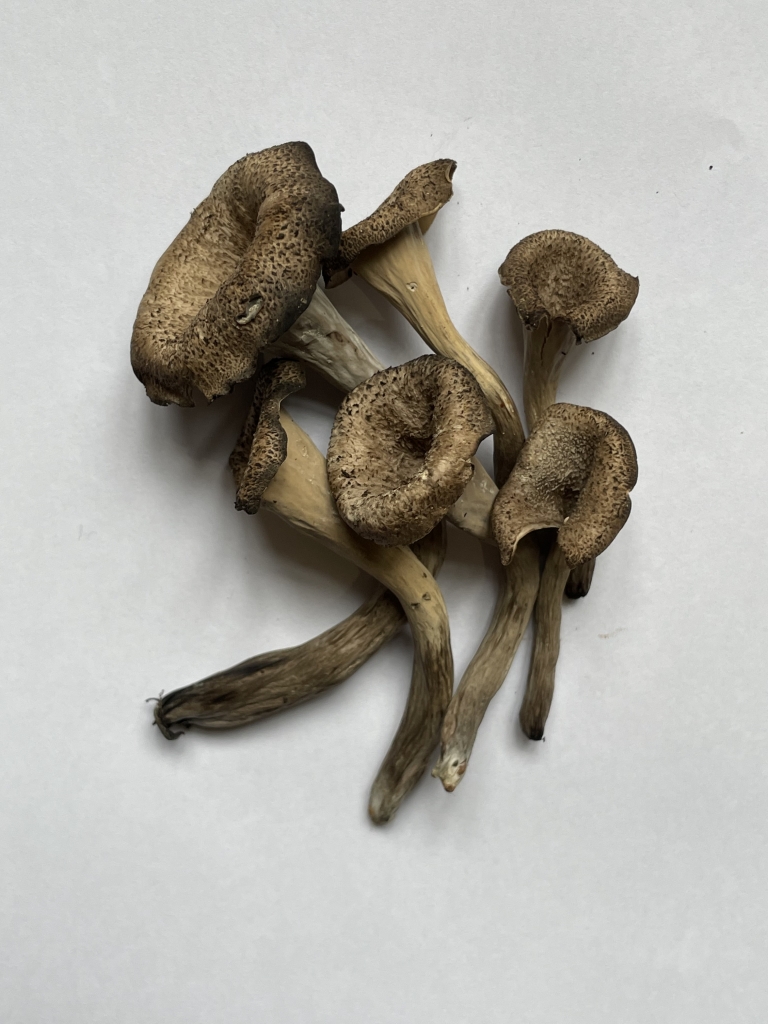Foraging in August 2021
Posted on 31st August 2021
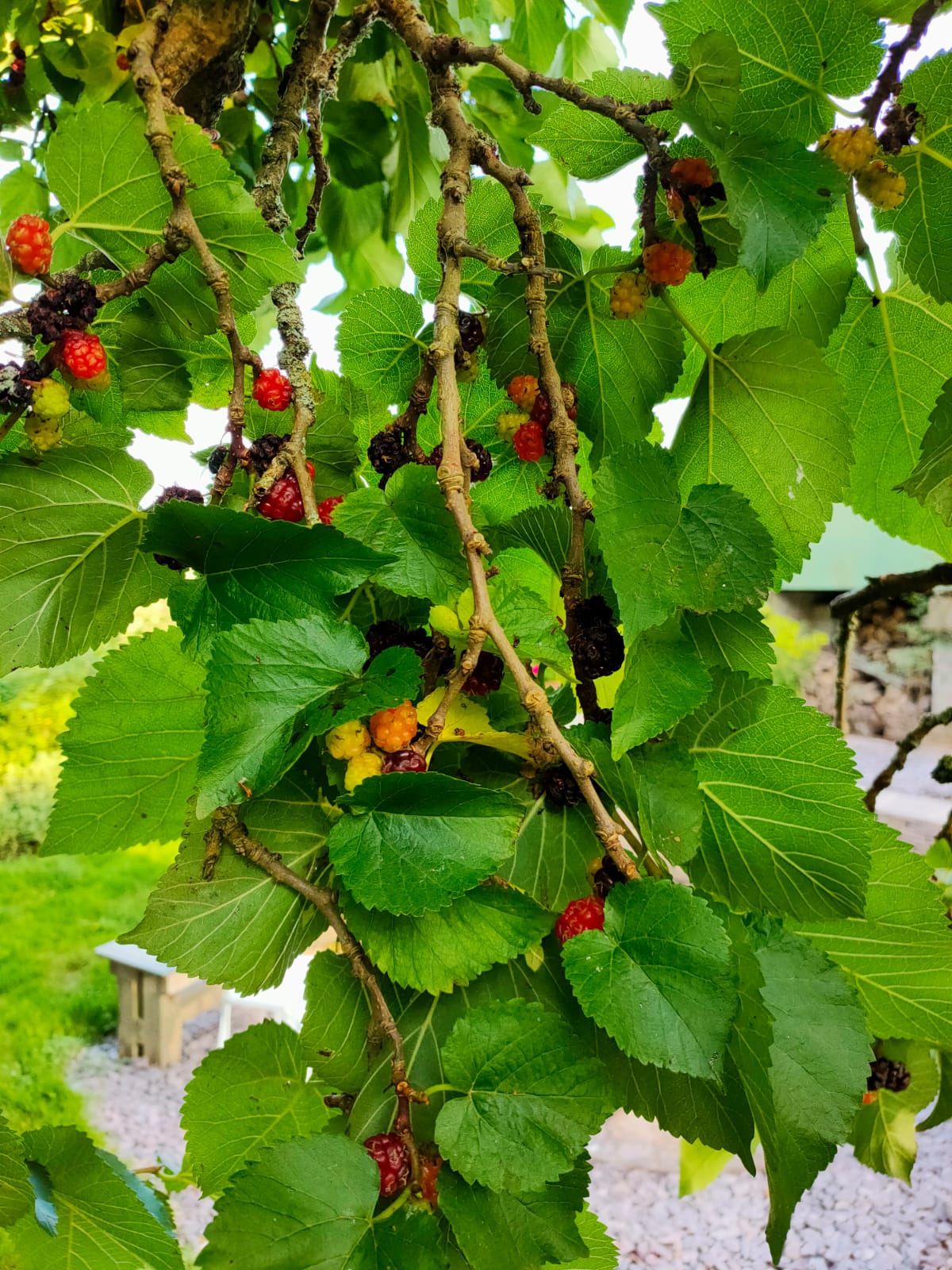
A U G U S T
Foraging in August: Here are a few edibles that we’ve found this month.
Here’s a few snippets of what we’ve been spotting while out foraging at the moment. We’ve included a few plants and mushrooms that you may find near you this month.
Why not have a go at spotting them yourselves.
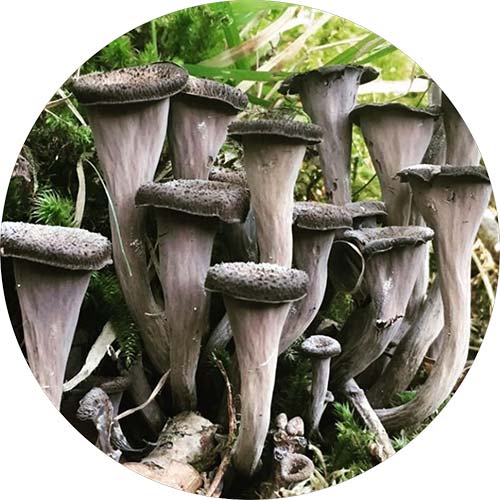
Scientific name: Trompette de la mort
These little gems can be found hiding in leaf litter in deciduous Woodland, usually in clusters with beech. These mushrooms are usually black, but can be grey, silver or brown, particularly on the outside and they are funnel or trumpet shaped.
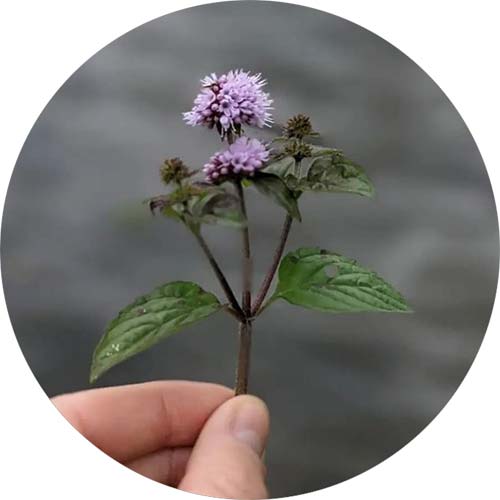
Scientific name: Mentha aquatica
A sweet and mint tasting plant. Fairly common, you are likely to spot them growing near or in water or damp woodland areas from April through to October. The smell of this plant is your best identification feature and its usually growing nearby or in water.
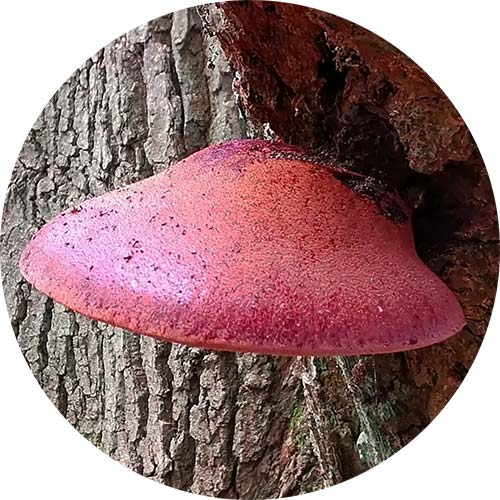
Scientific name: Fistulina hepatica
Also known as Ox-tongue fungus. Their colour can vary between red, pink or brown. This mushroom has a distinctive shape, often described to look like a tongue. Beefsteak fungus has a slightly acidic flavours, so works best cooked in a creamy recipe or mixed with other mushrooms. Beefsteak fungus can usually be foraged in from August through to November.
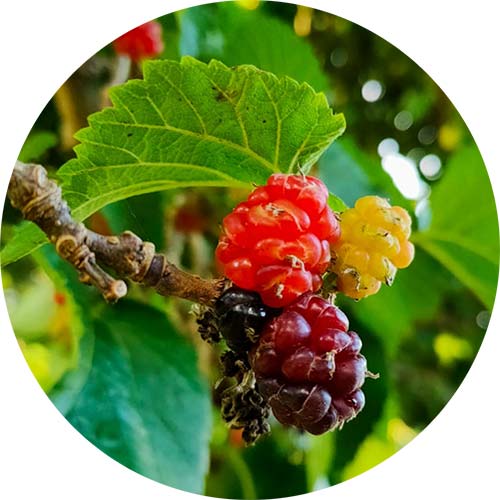
Scientific name: Morus Nigra
These berries can grow up to an inch long, They are deliciously tasty but they don’t last long once picked so make sure to use them up quickly or freeze them for a tasty treat later in the year.
They stain very easily so be sure you’re not wearing your bst clothes! Mulberries are fantastic when used to flavour gin.
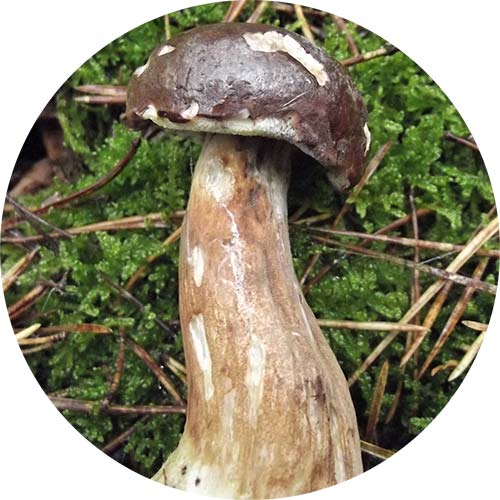
Scientific name: Bolastydveteus/ imleria badia
A great mushroom and not far from the penny bun in gastronomic value. You can likely forage for these tasty treats from august through to November. These mushrooms are pretty common and a great find.
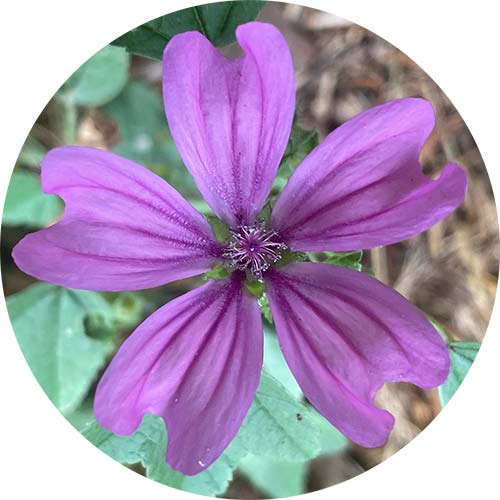
Scientific name: Malva sylvestris
Something of a superfood, common mallow is rich in vitamin and minerals. Its leaves, flowers and fruits are all edible and it’s a reasonably identifiable plant. A very pretty plant to brighten up any late summer salad.
Happy foraging everyone!
If you’d like to know a little more about our finds please head over to our sister site, Wild Food UK to see their very helpful mushroom and hedgerow guides.
*please note that photos vary to every hedgerow*.
Please let us know if you need any assistance or information and remember to stay safe and never eat anything unless you’re 100% sure it is safe to do so.
Don’t forget to follow us on our social media pages
Instagram @foragingshop @wildfooduk
